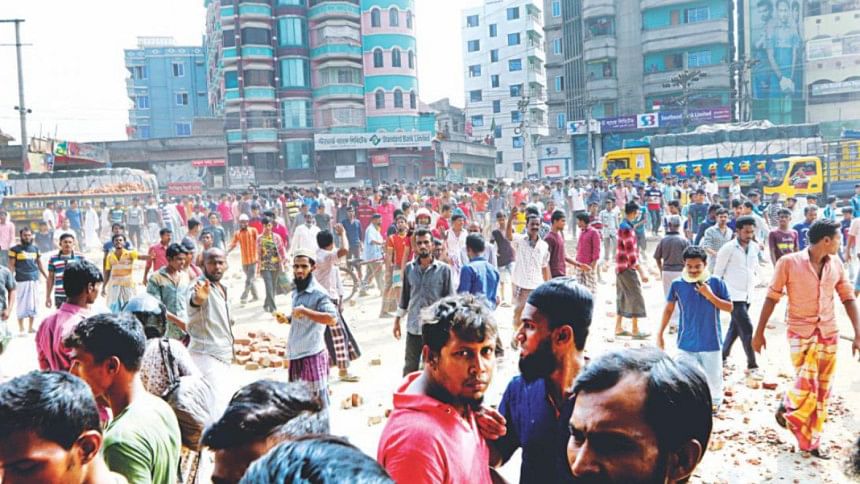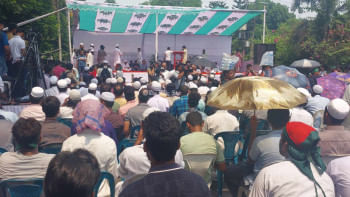For whom the bridge tolls?

It is most unfortunate that an unrealistic hike in toll collection from a bridge should end in violent clashes between transport workers and the police resulting in the death of a truck helper and injuries to around a hundred people. The tragedy was instigated by an unusually sharp hike in tolls by the R&H Department for the First Bangladesh-China Friendship Bridge (1st Buriganga bridge).
Since 2016, transport workers have been demanding that the toll be eliminated altogether. While that may not be entirely justifiable, neither is the sudden manifold increase in the rates putting an extra burden of cost on buses, trucks, covered vans, and other vehicles. The toll for a six-wheeled district truck has increased four times while for a 10-wheeler covered van, the toll has increased more than 12 times the previous rate. This seems illogical and is an unnecessarily heavy burden on such vehicles that translates to lower wages for transport workers. The vehicles on which these tolls have been imposed mainly carry construction materials such as sand or bricks for construction projects and transport workers are paid according to the number of jobs they get. When tolls are increased so drastically, it raises the cost of transport leading to fewer trips and hence fewer jobs for the transport workers.
While we do not support blockades of roads or bridges or vandalising of property, we cannot deny that the demonstrations by transport workers have been provoked because their incomes have been affected. Using excessive force on these workers leading to death and injury is not justified, especially without addressing their legitimate concerns. We hope that the authorities will prioritise the needs of the workers over the outsourced toll collectors. A review of the toll rates is in order.

 For all latest news, follow The Daily Star's Google News channel.
For all latest news, follow The Daily Star's Google News channel. 



Comments